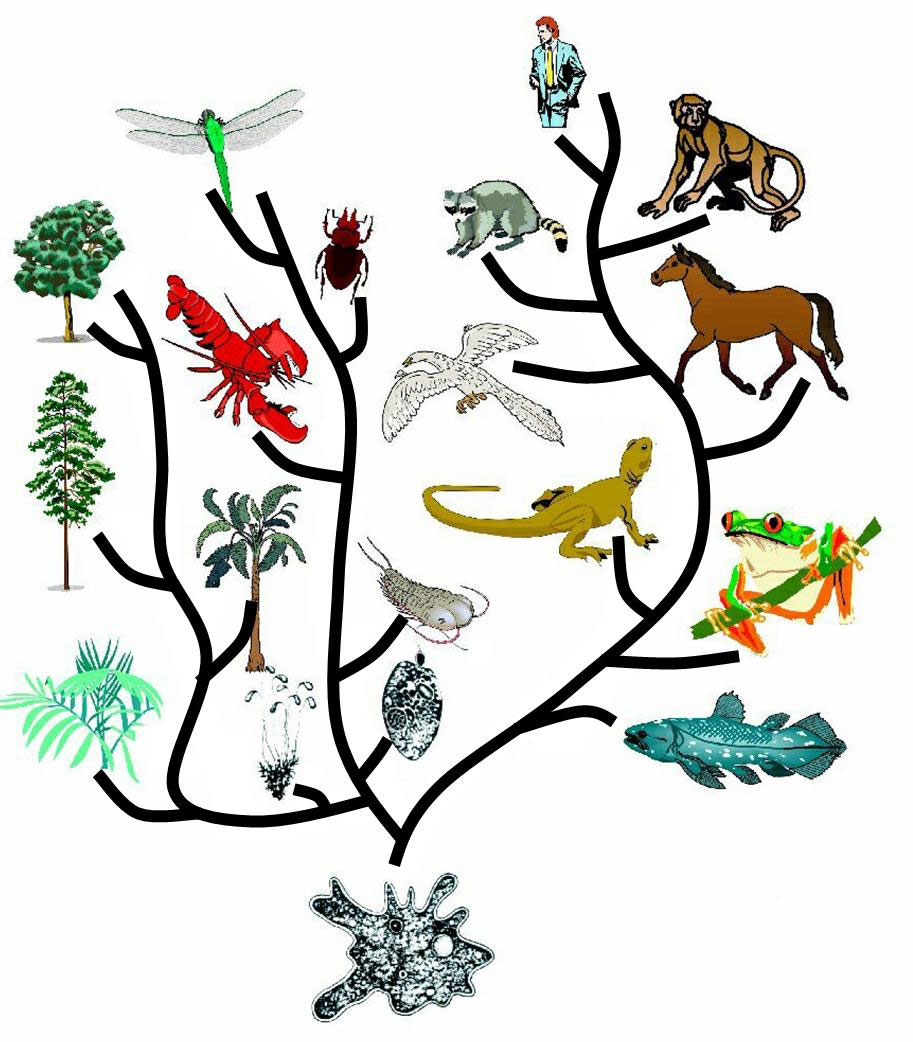Don’t fall for the bait and switch
Sloppy language leads to sloppy thinking

1. Evolution?
YES and NO
We observe variation, mutation and natural selection in living things.
Evolutionists call this ‘evolution’, and this is why they claim that evolution is true.
We see how the environment affects the survival of these different animals. We even see new species arising as a result of these processes.
These phenomena are observed and documented scientifically.
Creationists agree with all these observations.
In fact, these sorts of changes happen very quickly. Speciation can occur within a few generations.1 But, dogs remain dogs, frogs remain frogs, and horses remain horses.
We don’t see fish changing into frogs, or lizards into birds.
What we see is consistent with the biblical account of a recent creation. God created different kinds of animals at the beginning. These different kinds were capable of adapting to different environments.
Creationists prefer not to call this variation within a kind ‘evolution’ (not even ‘micro-evolution’2). We call these changes ‘adaptation’.
It doesn’t really matter what word you use, but it is important to know what you are talking about.
Creationists reserve the word evolution for something entirely different from what we see here.
2. Evolution?
NO
We have heard of the idea that single-celled animals changed by mutation and natural selection into reptiles, birds, mammals and people, over millions of years.

This is what creationists call evolution and they distinguish it from adaptation. Evolutionists call this evolution too, the same word they use for adaptation. That is why there is so much confusion on this issue.
Evolutionists use the same word for two entirely different things (called equivocation), and so you don’t really know what they are talking about.
If small random mutations are to produce new genetic information for these amazing changes in animals, then millions of such genetic errors would be needed over millions of generations.3 That is why evolutionists need billions of years for the idea to be plausible.
However, these sorts of changes have never been observed.
Variation and natural selection do not produce new genetic information; they only rearrange or remove the existing information.
Mutations do not generate new genetic information; they destroy some of the existing information.
Furthermore, the fossils are not consistent with the idea of evolution; the innumerable transitional forms expected are missing.

This molecules-to-man concept of evolution is just a hypothetical philosophy without observational scientific support. This concept of evolution is used to justify the assertion that the living world can be explained without God.
It is contrary to the teaching of the biblical account.
It looks scientific, but as we have seen it is not.
It is a bit of a trick played by using sloppy language. Evolutionists use adaptation, which is observed, to support evolution, which is an entirely different process. It is an example of bait and switch.
They get away with it because people do not realize they are using the same word to mean two entirely different things.
Watch out
Next time someone says that evolution is an observed scientific fact make sure you get them to clearly define what they are talking about.
They will almost certainly be referring to adaptation but want you to believe they have proved evolution.
Don’t be fooled. Sloppy language leads to sloppy thinking.
You wouldn’t want to make the wrong decision about the reliability of the Bible, where you came from and why you are here because you fell for the bait and switch trick.
References and notes
- Catchpoole, D. and Wieland, C., Speedy species surprise, Creation 23(2):13–15, 2001. Return to text.
- The term ‘micro-evolution’ is misleading because the changes are in the wrong direction. Return to text.
- The size of the change is not the problem, rather the change is going the wrong way; see Wieland, C., The evolution train’s a comin’, Creation 24(2):16–19, 2002. Return to text.




Readers’ comments
Comments are automatically closed 14 days after publication.